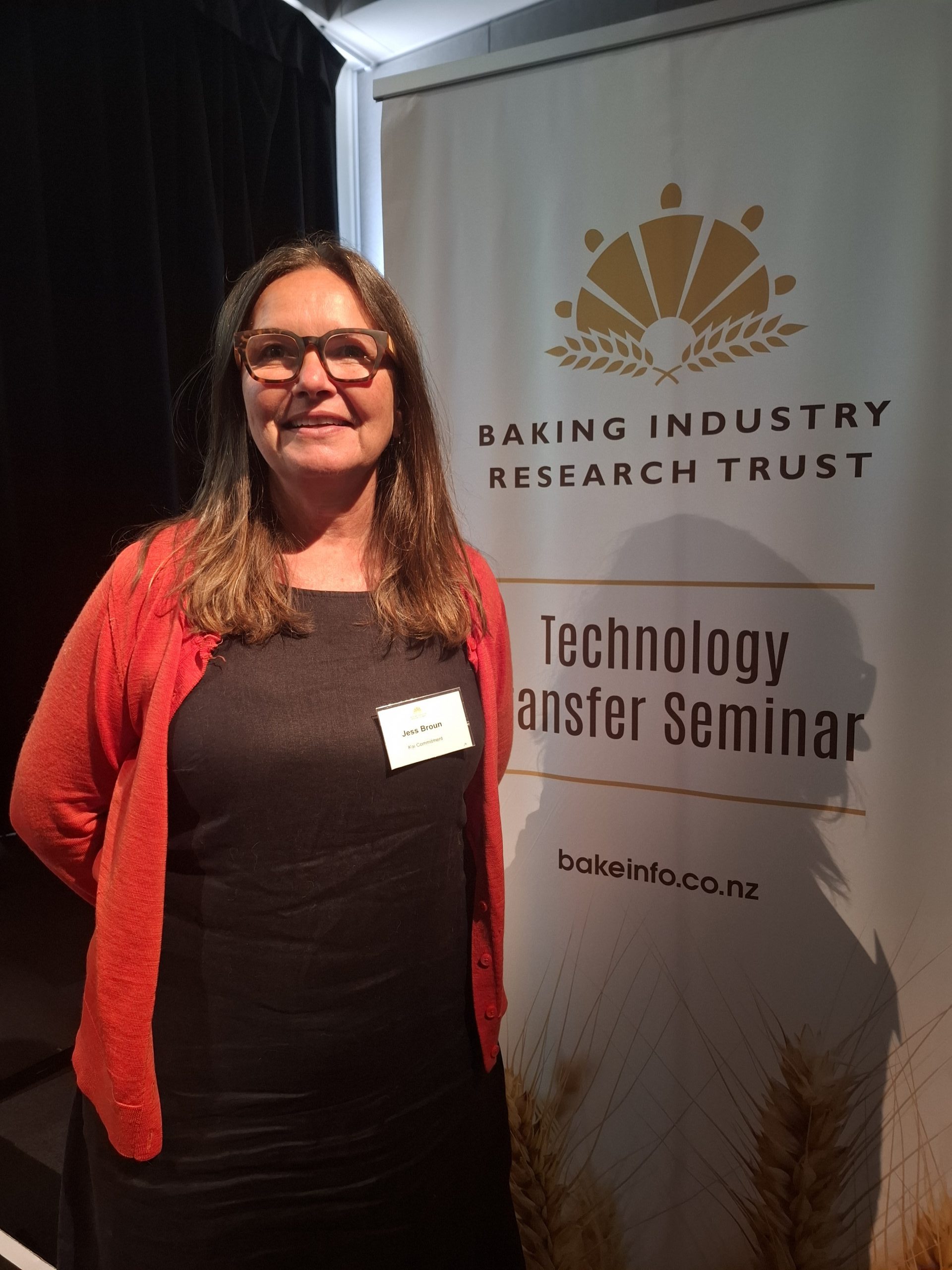Recent Articles
- Recovering valuable resources to create sustainable biogas and biofertilizer
- Field to Flour: Can we reduce our footprint?
- Leading Action on Food Waste
- Bread bags from bread returns
- Baking Global Technology Scan
- Sustainability for the Baking Industry – Food without Footprint
- Better energy management for bakers
- Update on the Soft Plastic Recycling Scheme
- Good for the environment – Good for business
- BIRT Technology Transfer Seminars 2025 Evaluation
Presented as part of Technology Transfer Seminars 2025
Jess Broun, Kai Commitment
Jess Broun is the Programme and Account Manager for Kai Commitment, a voluntary agreement for leading food businesses to reduce their food waste led by New Zealand Food Waste Champions. Jess has an extensive Partner and Operation management background with many years spent in the food sector. She works to empower businesses to see the opportunity in their surplus and take a leadership role in reducing their food waste.
Everybody’s Responsibility, Every Business’s Opportunity
“When you look at the food it was meant to be, not the waste it became, you realize the true cost.” There are opportunities to not only reduce food waste, says Jess, but to innovate, create value and empower people. If you know why you are wasting food, you can change it.
Food waste contributes to global climate change, the cost of living, and food insecurity crises. It has economic, social, and environmental impacts. In New Zealand, 45% of land is used to grow food or farm animals, equivalent to the entire North Island. A third of this food goes to waste. Waste occurs across the supply chain, including the energy, water, manufacturing, and resources used to produce food. 80% of New Zealand’s exports go to countries with mandatory climate-related disclosures. Reducing food waste and diverting food waste from landfills would significantly help New Zealand achieve its methane reduction target.
So, where do we start? Business/ industry can drive significant change across the food system chain, but better collaboration is needed to reduce food waste faster. Jess notes that while a lot of good work is being done, collective efforts are essential for greater impact.
Voluntary food waste agreements are emerging globally. “Kai Commitment,” New Zealand’s food pact launched in 2022, focuses on identifying waste, understanding its drivers, and taking action. The program encourages businesses to set targets, measure food waste, plan and act to reduce it, and collaborate to innovate and share best practices.
Every business should ask itself the cost of unsold or wasted food. Viewing it as surplus rather than waste can help see it as an asset that can be reused and create value. Considering waste at the product design stage can prevent it occurring.
Managing food waste according to a food recovery hierarchy helps businesses reduce their emissions and disposal costs and ensures their surplus goes to the best destination possible. The preferred outcome is preventing food waste or redistributing it commercially. This is closely followed by donating to people in need or to stock feed. Next, businesses should seek waste destinations that enable nutrient or energy recovery; the least preferred outcome is food waste ending up in landfills.
A collaborative project involving several large commercial bakeries identified food waste destinations and drivers across the bread supply chain. The resulting map highlights the need for coordination and collaboration between supply chain stages to address systemic food waste drivers. It also captures end destinations for food waste and barriers and enablers for each.
The Working Group is consolidating findings and deciding how best to disseminate the resource and project outcomes. Businesses involved are working together on root cause analysis and piloting projects to reduce food waste. Detailed findings and analysis from this project will be published shortly and will be accessible on KaiCommitment.org.nz
In recognition of Food Waste Action Week, Kai Commitment has launched a free resource, The Food Waste Rapid Review tool. The tool offers actionable steps to:
- Identify areas where food waste occurs within your operations.
- Implement strategies to reduce waste effectively.
- Measure progress to ensure continuous improvement.
The tool is designed to help businesses achieve significant benefits, including cost savings, enhanced operational efficiency, and strengthened sustainability practices.
Reducing food waste is also a great way to contribute to a more efficient, resilient, and sustainable food system that benefits everyone. Regardless of where you are in the supply chain, we can all do something, but we achieve the best results by working together.

